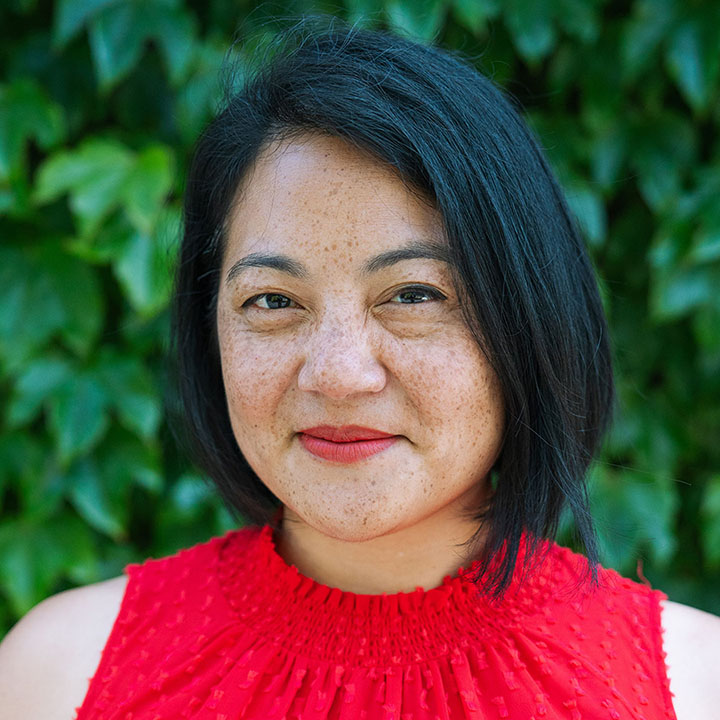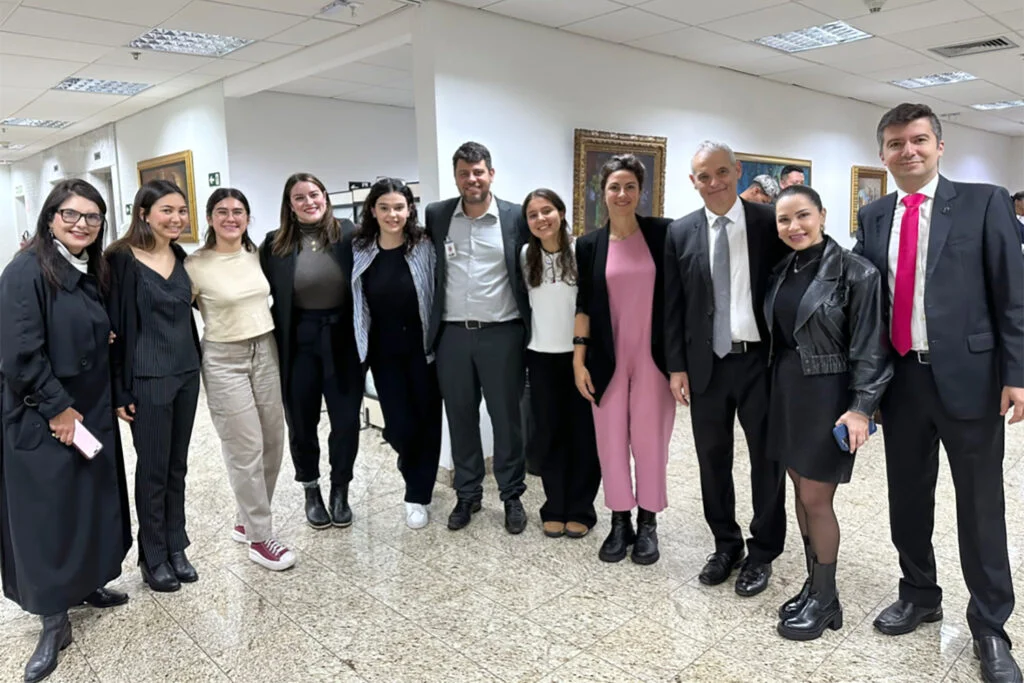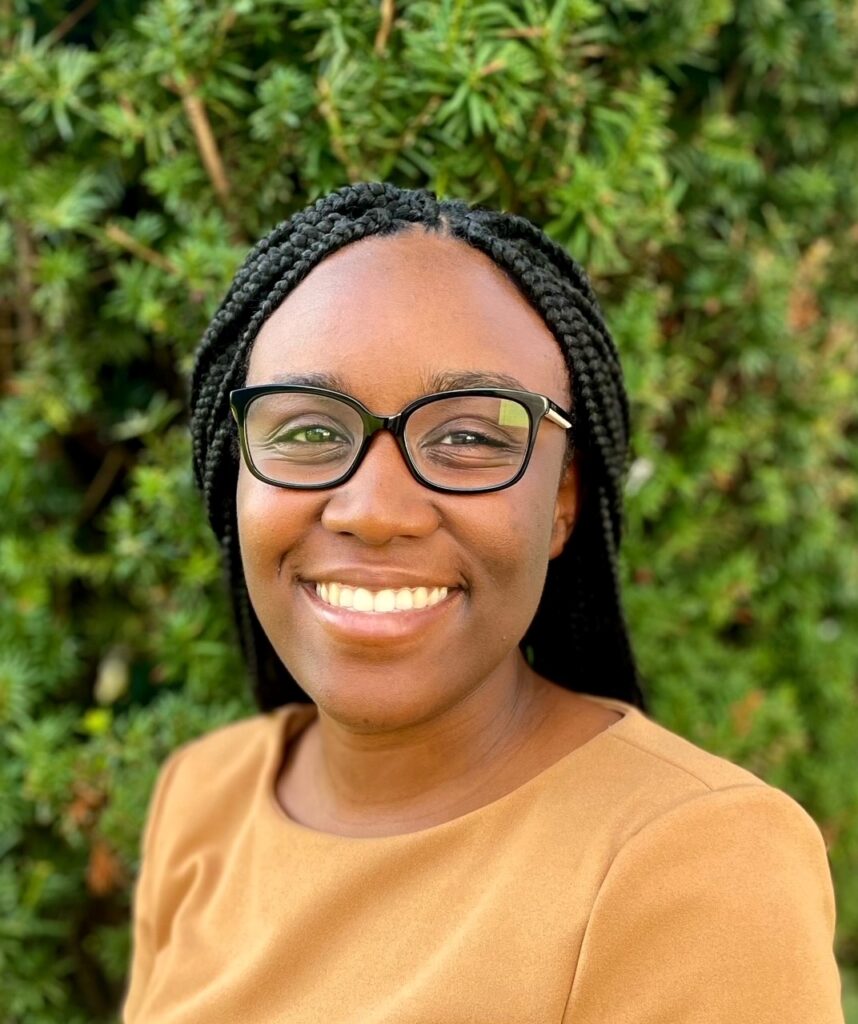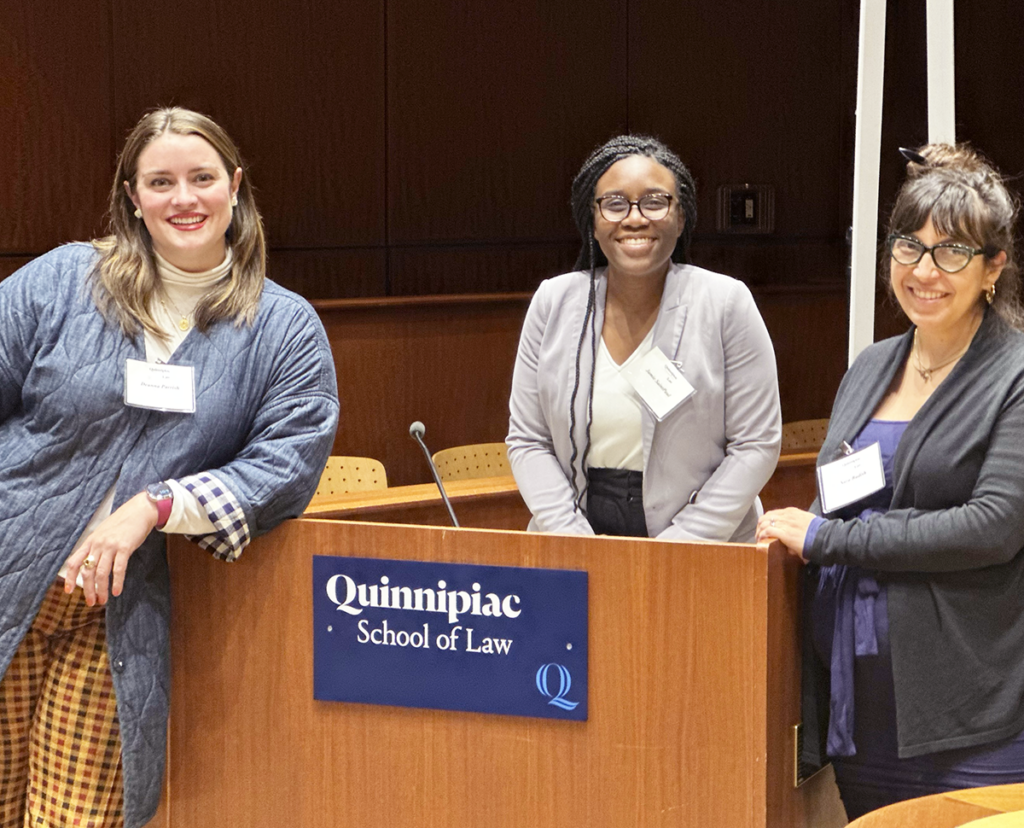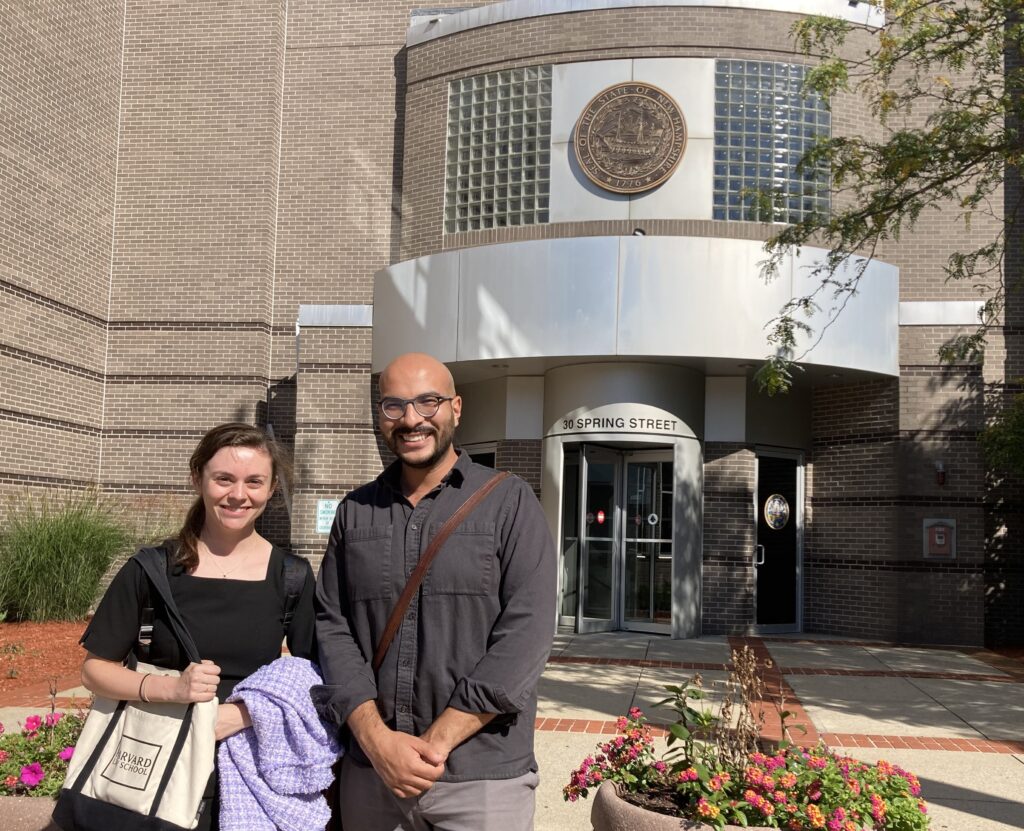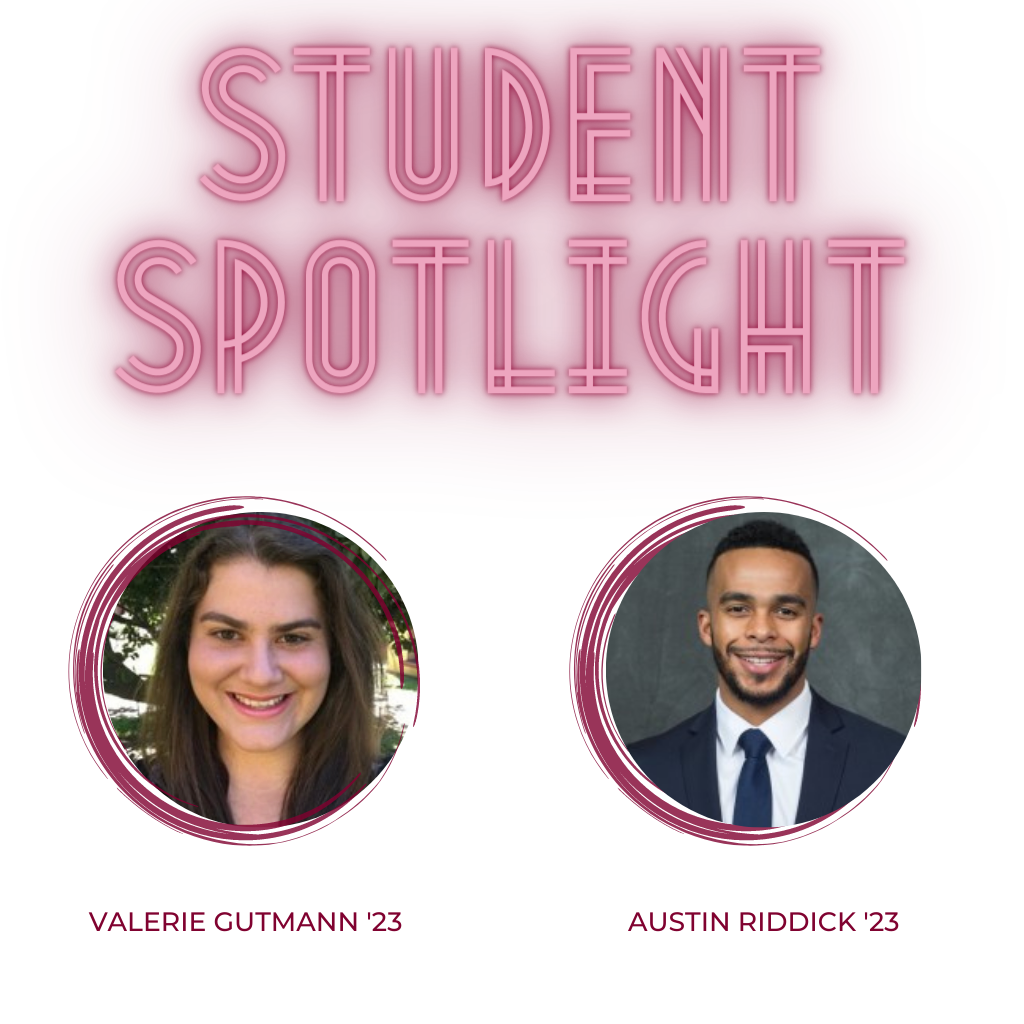This story first appeared on Harvard Law Today.
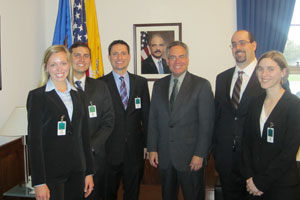
When one of them recommended that the president threaten a veto of a defense appropriation bill, someone in the audience interrupted, questioning how the public would respond to such an action. When another member of the team suggested enlisting a military figure to publicly back the president on the issue, an audience member again jumped in, asking whether a general would take a stand on such a controversial political position. The discussion continued, with different negotiators defending their ideas, trying to shape a path for agreement in the face of seemingly intractable gridlock.
This was not a high-level White House negotiation session. But it was as close a replica as possible in a classroom at Harvard Law School, where teams of students in a new advanced negotiation workshop offered advice on how to handle Guantanamo detainees. Although the negotiation wasn’t real — a group of professors responded to the presentation instead of government officials — for the students the stakes were still high. One team was later selected by fellow students to travel to Washington, D.C., to make a presentation on Guantanamo to U.S. Assistant Attorney General Ronald Weich, who heads the Office of Legislative Affairs at the Justice Department.
That team met with Weich on January 27, discussing the current status of Guantanamo and opportunities for the administration to work with Congress to improve the situation both from a national-security and a human-rights perspective. One of the students, Grant Strother ’12, said: “I think the AAG enjoyed our presentation, and I know we all learned a lot from him about the situation ‘on the ground’ from his experiences with political negotiations.”
Also participating was Clinical Professor Robert Bordone, who co-taught the workshop with Lecturer on Law Rory Van Loo. He arranged the meeting after leading a negotiation training with senior members of the Obama administration, including Weich. “This was a wonderful capstone to an exciting course project for our students,” he said. “I was particularly pleased that it gave our students a chance to apply the in-class theor y of negotiation to a real-world problem that is messy, complex, and important.”
y of negotiation to a real-world problem that is messy, complex, and important.”
Each step leading to the final presentation, from agreeing on team strategy to choosing the winning team, highlighted the skills being taught in the workshop, which covered multiparty negotiation, group decision making, and special dispute management processes. According to Bordone, most of the negotiation literature focuses on one-on-one negotiation skills, but having teams in the workshop operate under a scenario with multiple stakeholders introduced complexities that benefited the students.

“I think they realized that negotiating in a multiparty environment requires more than sophisticated skills at the table,” he said. “It also requires a real ability to think strategically, to think about how to sequence the issues, how to get the right parties to the table. They have a much more sophisticated understanding of how to prepare for a complex negotiation and how to execute it.”
The winning team recommended forging a coalition including NGOs, state and foreign governments, and members of different political parties, in order to build momentum and sway public opinion. In addition, the team recommended framing the issue through a national-security lens in order to persuade members of Congress. Strother said that approach would “allow people to save face but not allow people to turn it into political soapbox.”
According to Strother, the team developed rapport by defining each person’s best role, both for preparations and during the presentation. The team also conducted moot sessions to prepare for the often tough questions posed by the judges. Another important strategy, he said, was “creating an environment where people were comfortable challenging the way the group was thinking.”
Strother’s group was chosen to travel to Washington after a discussion and several votes of students during a class session late in the fall semester. Bordone noted that the instructors wanted to give the students responsibility for the selection process, offering another lesson in the challenges of group decision making. Krista deBoer ’12, whose team was one of the two finalists, said that making a decision in such a short amount of time was difficult but the outcome was fair: “There was a lot of tension between teams wanting to be the team that went and also in the end we all wanted the best team to go to represent our class.”
Although she has taken other negotiation classes, she had not experienced the dynamic of a group negotiation before. The experience taught her the importance of what happens before the negotiation begins, she said.
“All the prep work you do before negotiation is as important if not more important than what you actually do at the table,” said deBoer. “To think of it that way completely changes the way I look at negotiation. It shifted my mindset entirely.”
The group dynamic helped students identify their own strengths and weaknesses, and the different skills, resources, and abilities of others, according to Bordone. When they enter the world of practice, the students will often see more than one lawyer on each side of the table. Bordone hopes the class will help prepare them for that experience.
“In fact, our students are going to be asked constantly to work on teams, and they have very little training on how to work on a team,” Bordone said. “In the globalized, changing world of law practice, this skill set seems more important than ever.”

